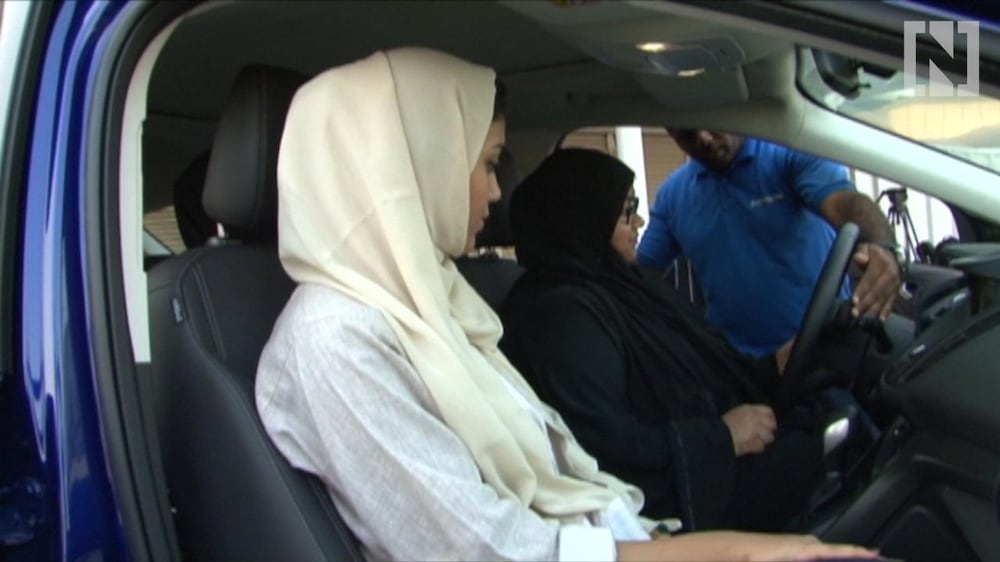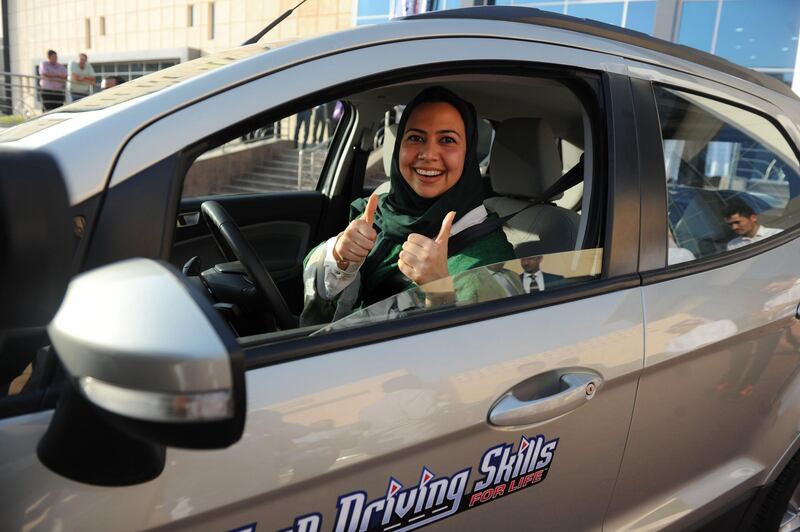Reform in Saudi Arabia is a necessary acknowledgement that women are already well placed to play a full role in the economy, according to a leading voice in the kingdom's advisory assembly.
One of 29 female members of Saudi Arabia’s Shura council, Dr Hoda Al Helaissi, spoke at the Royal United Services Institute think tank in London on Thursday. She was in London as part of the delegation accompanying Crown Prince Mohammed Bin Salman.
The second day of his visit coincided with International Women’s Day, and with one of the most senior female figures in the kingdom on the stage it was certain the issue of women’s rights would dominate.
_______________
Saudi transformation
Princess Reema: driving is not the 'be all' of Saudi women's rights
Editorial: Making the best use of Saudi's human capital is a game-changer
_______________
The crown prince has overseen several high-profile reforms to women’s rights since he was made heir to the throne last June. In Riyadh, car manufacturers are already anticipating a surge in demand when a ban on women driving is lifted in June. In December the kingdom hosted its first public concert by a female performer.
As a former vice chair of the Shura’s foreign affairs committee, and daughter of a former ambassador to London, Mrs Al Helaissi is an establishment figure. Yet she does not shirk from laying down some tough messages on the situation in Saudi Arabia from within.
“70 per cent [of the population] is under 30, it is unreasonable to expect the country to remain stagnant,” she said. Saudi Arabia’s youth "knows what it wants and where it wants to go, it is indirectly putting pressure on the government. There is restructuring and re-examination on all levels.”
But these changes go beyond royal decrees, as Mrs Al Helaissi pointed out. “Women now hold more than $130bn in Saudi real estate”, and the literacy rate among them, once just 2 per cent is now 97 per cent.
Though the changes are coming, she insisted it was necessary that the reforms being introduced in Saudi Arabia are not rushed at the behest of external powers.
Change "can never be imposed on a country, it must come from within, and at the speed of its citizens," she said.
"A country must use 100% of human resources, both male and female."
She hit back at the international depiction of Saudi Arabia's women as "oppressed, and not allowed to work".
"The Saudi women has revealed herself as a strong and ambitious individual to the outside world. Islam encourages education regardless of gender, it is not Islam that impedes her success; much of what is perceived by the West as backward is based on tradition.
“We must stop thinking of Islam as responsible for impeding her success on a national and international level."
She insisted that the empowerment of women was not merely a cosmetic change, but in fact integral to Prince Mohammed’s Vision 2030 programme.
"1.3 million more women will be forced into the workplace by 2030," Mrs Al Helaissi said.
Saudi women take driving lessons in Jeddah

“Empowering women to participate in all economic sectors is crucial to achieving 2030. It can only be realised through co-ordinated efforts of private and government sectors.”
Nor are the current reforms all about jobs. “We introduced sports for girls at school last year," she said.
“Young people want entertainment, but don't want to travel to Bahrain or Dubai for it. Last year we hosted Nelly and John Travolta”.
Prince Mohammed's trip to the UK has had to address the doubts of the many who remain sceptical that the place of women in the kingdom’s society is changing for the good. As Mrs Al Helaissi herself put it, “time will show”.






